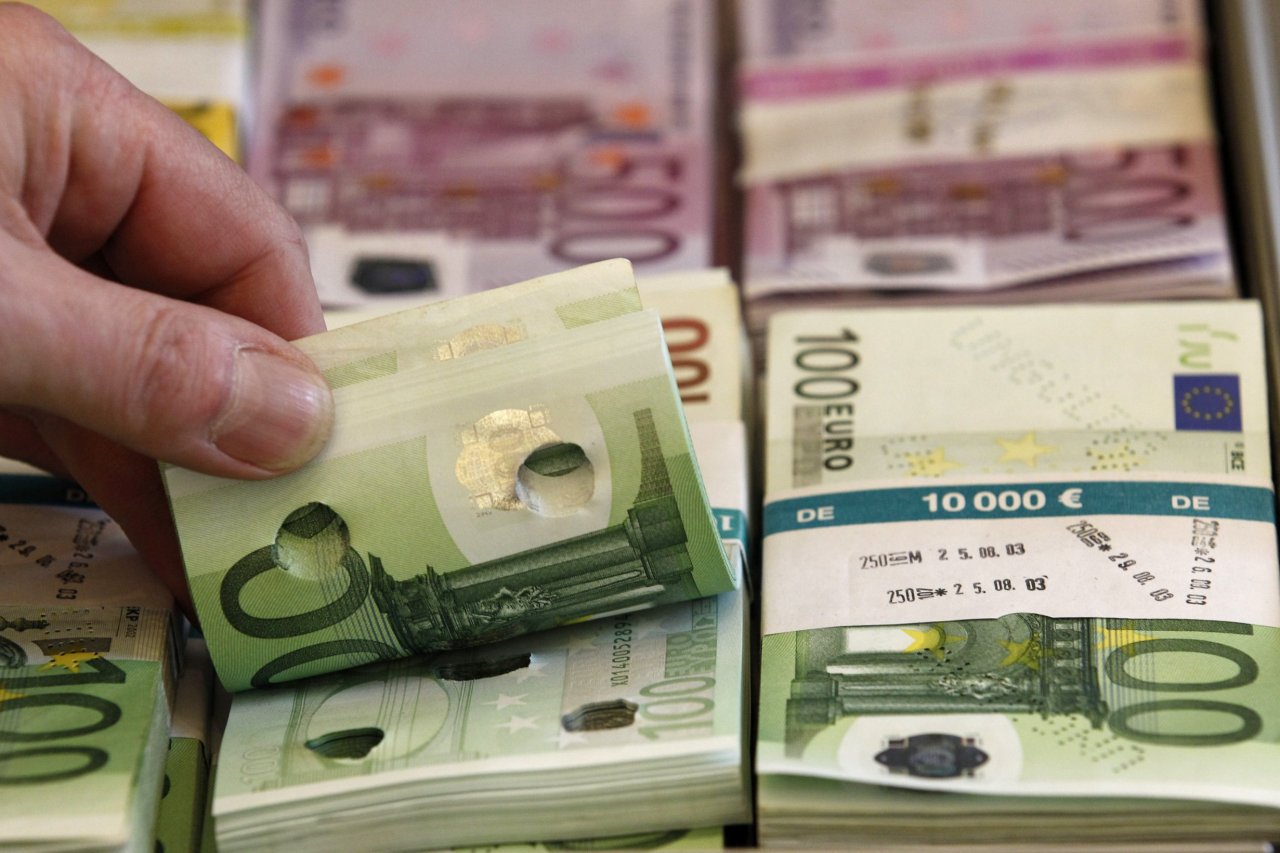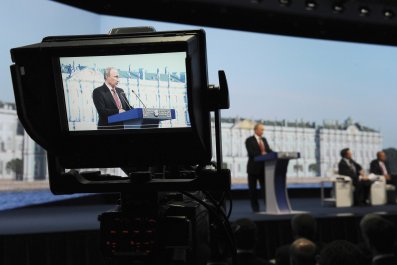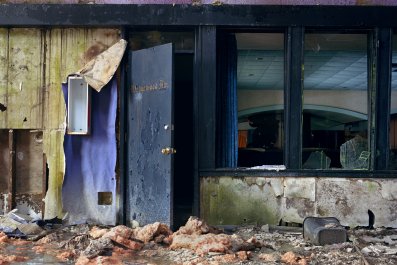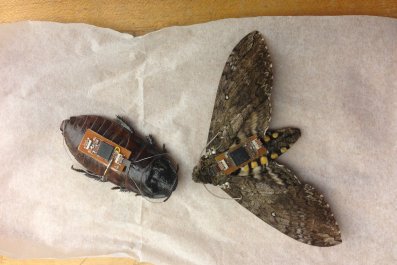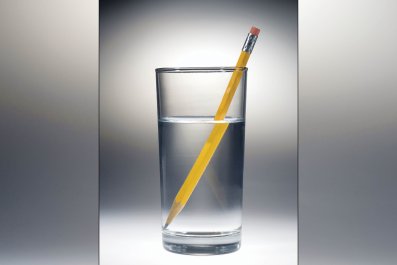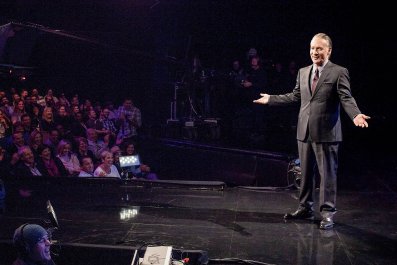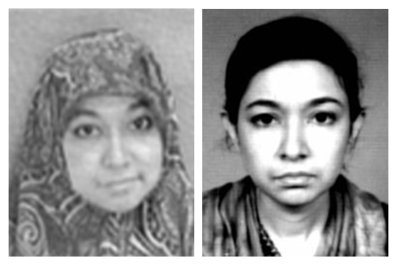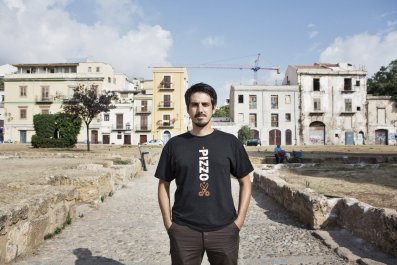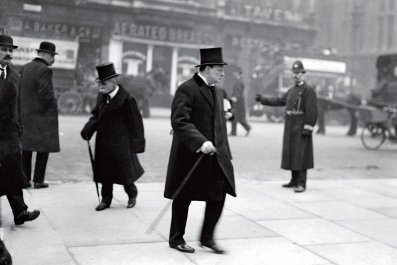The man was sweating on the platform of the train station. Beads of perspiration dappled his forehead as he clutched his briefcase to his chest. For the plainclothes inspectors of French customs watching him at the Gare du Nord in Paris, he seemed a prime suspect in the latest crime wave sweeping a continent wracked by financial discord – cash smuggling.
Sure enough, a quick search of Boris Boillon's briefcase turned up the contraband – €350,000 – in mostly €500 notes, which customs officers across Europe call "Bin Ladens" because they are the favourite currency of terrorists.
But it is not only terrorists moving them around countries, continents and time zones; it is the cash-strapped middle classes and a wealthy elite desperate to keep their savings from the claws of the taxman.
Boillon, a former ambassador to Iraq and Tunisia and the holder of a Legion of Honour medal, is but one of the "cash commuters" now being targeted by law enforcement across Europe. Police in France, Germany, the Netherlands, Spain, Italy, Belgium and Switzerland are investing in training dogs not to root out narcotics but the precise kind of ink and chemicals used in banknotes.
The catalyst for this extraordinary wave of illicit money-movement is the decision by banks in Switzerland, Luxembourg, Liechtenstein and Monaco to water down the age-old rules of secrecy governing accounts held by foreigners.
Under pressure from the United States and the European Union, these countries are warning their customers that if they don't declare their bank accounts to the taxman in the countries where they live, they threaten to do it for them. That, or issue a cheque for the amount they hold followed by the closure of their account – but a cheque is no good for individuals who would have to use it to open another account, thus flagging up to fiscal authorities that which they want to hide in the first place. As a result, people who wouldn't dream of breaking the law in any other respect are now playing a high-stakes game of chance.
For the authorities, the stakes could hardly be higher; in France alone an average of €318,000 was seized every day in 2012 in undeclared money. It was hidden in crisp packets, in the linings of suitcases, in toothpaste tubes and, in several cases, in the pockets of children used as unwitting cash "mules" by their desperate parents, according to French customs officials.
Across the continent, according to Interpol figures, the annual amount seized by EU, Swiss, Liechtenstein and Monaco officials is around a million euros daily. Legally, a maximum of €10,000 or its equivalent in other currencies can be transported across borders in Europe without a form being filled in to report what the cash is for and where it has come from.
"For people who want to avoid taxes, the only solution is to go to the country where their illegal account is held and take the money out in cash," says Mathieu Delahousse, co-author of a book published last year in France called Cash Cache about the phenomenon. "Banks are closing accounts of foreign customers and then people have to make a choice: declare the money and pay high taxes, or hide it."
In the summer of 2013, a family of four was observed at the railway station in Basel in Switzerland divvying up €600,000 before they boarded the train back into Germany where they planned to catch a flight home to the United States. Swiss officials said the mother and father were seen stuffing the cash into the pockets of their children's clothes. All were later arrested and the money confiscated.
In February, sleuths aboard the Zurich-Paris express stopped a smuggler with €1.8m wrapped in a bandage around his leg. It was aboard the Zurich–Munich express in September 2011 that an old man called Cornelius Gurlitt was quizzed by customs agents about the €9,000 he had with him and where it came from: the suspicions which led the following year to the discovery of an estimated billion pounds worth of Nazi-era art in his apartment.
Early last year, Swiss agents stopped a man trying to drive into France with bearer bonds – they function almost as cash because the owners are anonymous – worth £75m.
In Germany, on the winding back roads leading into Luxembourg and Switzerland, officials set up flying squads of officers that swoop on suspect cars like locusts. They have discovered huge amounts of cash, both entering and leaving the Duchy, hidden in tyre inner tubes, in the window washer reservoir and even in air filters. German border police recorded 2,666 seizures of illicit cash in 2013.
In one case, the smuggler had hidden the money in empty soup tins that he had refilled with money and sand corresponding to the exact weight of the can when it held minestrone. Germans are in something of a panic because domestic tax authorities have become accustomed to paying money to whistleblowers in foreign banks who sell on the data of black accounts held by its citizens.
"There are some days when every third car we pull over has hidden cash in it, often in the six figure range," says Hagen Kohlmann of the customs office in Ulm, southern Germany, whose office is responsible for policing the border with Germany, Austria and Switzerland.
"Businessmen with minimal luggage, a family group on edge, people bound for a financial capital – these are some of the things that we look for when we are on the look out," says Philippe Bock, secretary general of the French solidarity trade union for customs agents. "The Boillon case in July last year was not exceptional. We routinely find more than €350,000. Every month it increases because of the euro crisis."
In October 2013, Switzerland signed a treaty with the EU warning bank account holders that they had to declare what deposits they had. It was a long time coming but the tempo of smuggling increased massively in the previous two years in the run up to the Swiss accord.
Despite the colossal amounts seized, they amount continent-wide to just 5% of what the customs and police say is moving around from black bank accounts to mattresses and hidey-holes in family homes.
Lionel Messi, star of FC Barcelona, and Uli Hoeness, the former president of Bayern Munich FC, are two of the ultra-rich personalities who have been caught with forbidden bank accounts.
Yet, despite all the many warnings of harsh penalties and the stigma of a criminal record, the cash commuters seem committed to rolling the dice in a winner-takes-all game with customs agents.



